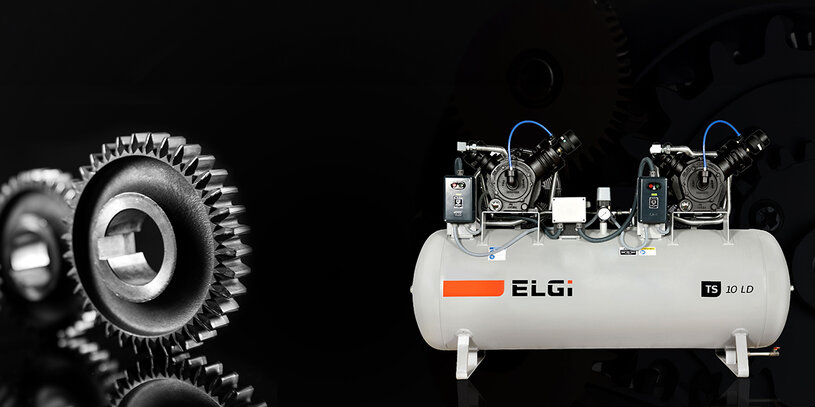Choosing the Right Reciprocating Air Compressor: Horsepower, Tank Capacity, and Key Applications for Small to Mid-Scale Industries
Published on:

Understanding Reciprocating (Piston) Air Compressors
Reciprocating, or piston, air compressors are one of the most popular choices for small to mid-scale industries. With horsepower ranging from 1 HP to 15 HP and tank capacities between 25 liters to 500 liters, these compressors are highly versatile and can meet a variety of industrial needs. They are especially well-suited for small workshops, auto repair, and other intermittent-use environments, providing reliable performance at an affordable cost.
Advantages of Reciprocating Compressors
Reciprocating air compressors offer several benefits that make them ideal for smaller setups. Here are some key advantages:
- Affordability: Cost-effective, making them accessible for small and medium industries.
- Portability: Many models are compact and portable, fitting into limited spaces.
- Easy Maintenance: Simple design allows for quick repairs and low maintenance.
- High Power Range: Available in a range of horsepower, from 1 HP to 15 HP, to cater to various power needs.
- Variety of Tank Sizes: Tank capacity options from 25 to 500 liters allow for tailored applications.
Common Applications of Reciprocating Air Compressors
With their versatility, reciprocating compressors find applications across multiple industries. Below are some typical uses:
- Auto Repair Shops: Powering pneumatic tools like impact wrenches and drills.
- Small Workshops: Supporting machinery for woodwork, metalwork, and crafting.
- Construction: Used to operate smaller pneumatic tools on-site.
- Paint Shops: Delivering steady air pressure for spray painting.
- Agriculture: Ideal for powering equipment in small farms and agricultural setups.
Factors to Consider When Choosing a Piston Compressor
Selecting the right compressor model requires understanding specific factors to meet your operational needs effectively. Here’s what to keep in mind:
- Horsepower Requirement: Choose between 1 HP to 15 HP based on your power needs and usage.
- Tank Capacity: Consider your workload—25 liters for light-duty tasks, up to 500 liters for higher demand.
- Duty Cycle: Intermittent versus continuous use affects wear; reciprocating compressors are ideal for intermittent use.
- Air Quality Needs: Oil-lubricated versus oil-free designs impact air purity, particularly important in sensitive industries.
- Budget: Balance initial cost with long-term maintenance for cost-effectiveness.
Maintenance Tips for Optimal Compressor Performance
Regular maintenance extends the life of your compressor and prevents breakdowns. Here are some tips to keep your compressor in top shape:
- Inspect Oil Levels: For lubricated compressors, check oil levels regularly and change oil as recommended.
- Check Filters: Clean or replace air filters regularly to maintain clean airflow and efficient operation.
- Drain Condensate: Periodically drain the tank to remove moisture that accumulates during compression.
- Monitor for Leaks: Keep an eye on pressure stability, which can indicate potential leaks in the system.
- Schedule Professional Inspections: Regular inspections by a qualified technician help identify issues early.
Conclusion
Reciprocating air compressors are a reliable choice for small to mid-scale industries, with horsepower and tank sizes that can be tailored to various applications. By understanding their benefits, choosing the right specifications, and following a maintenance routine, these compressors can provide efficient, long-term service in diverse industrial settings.
